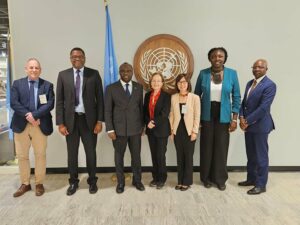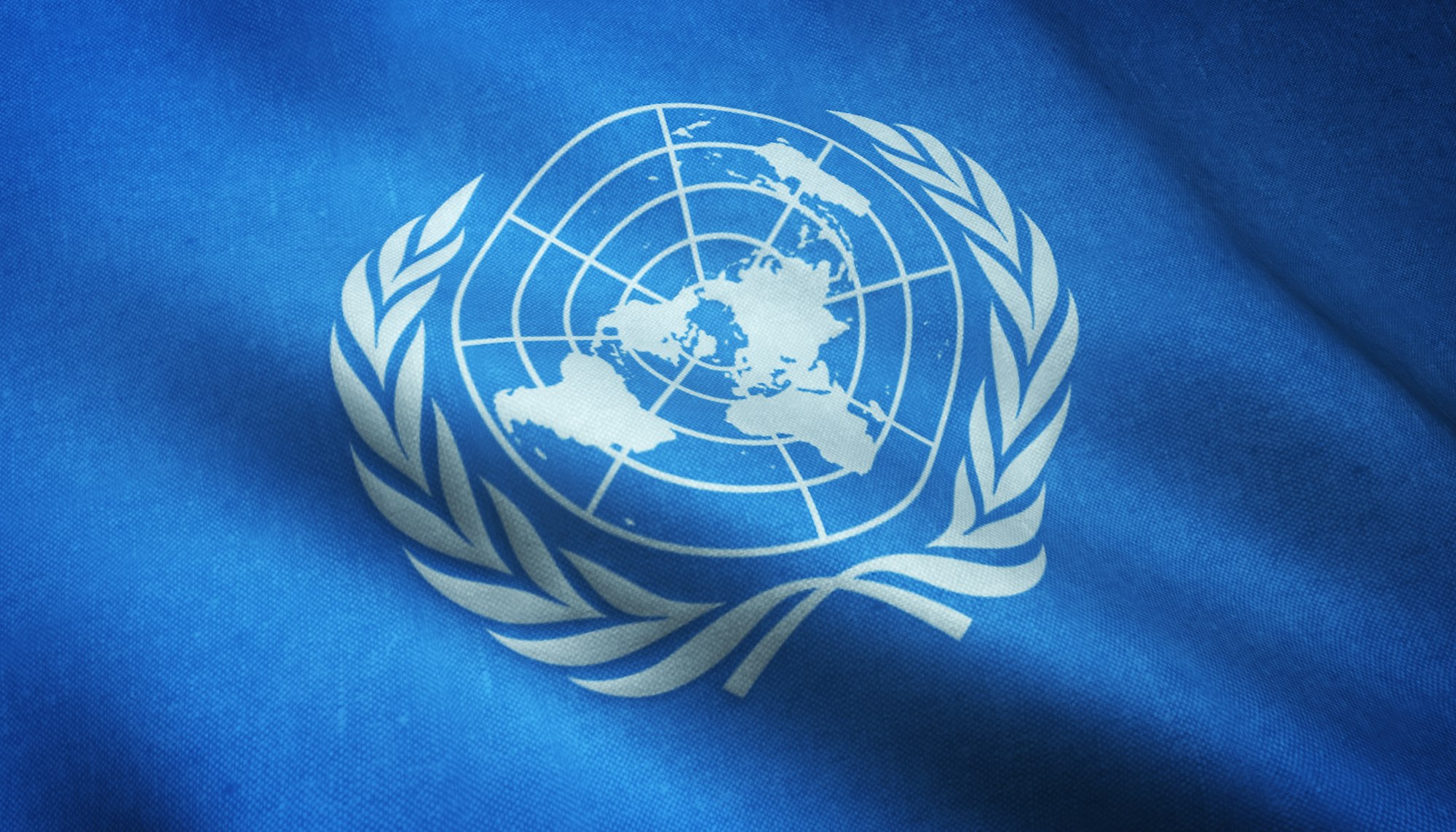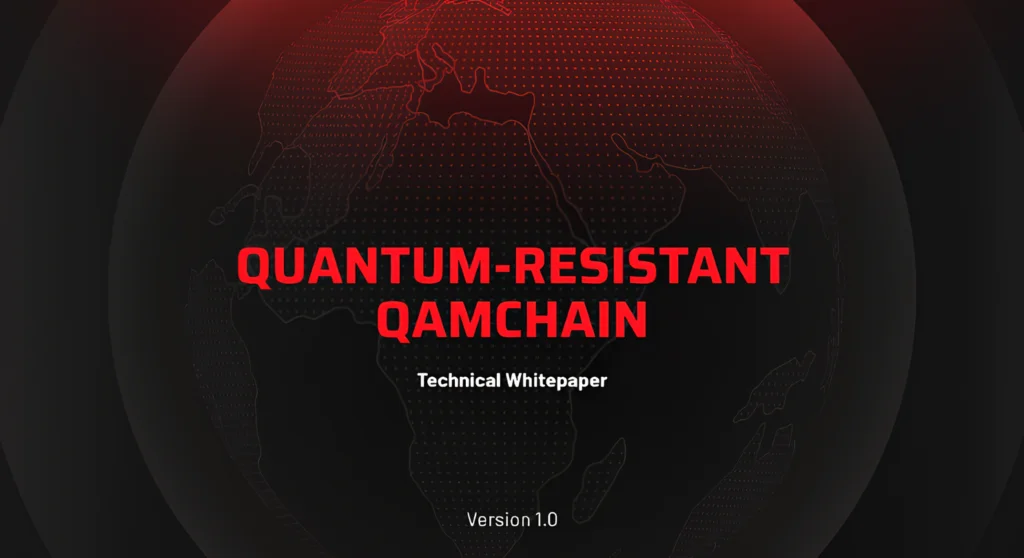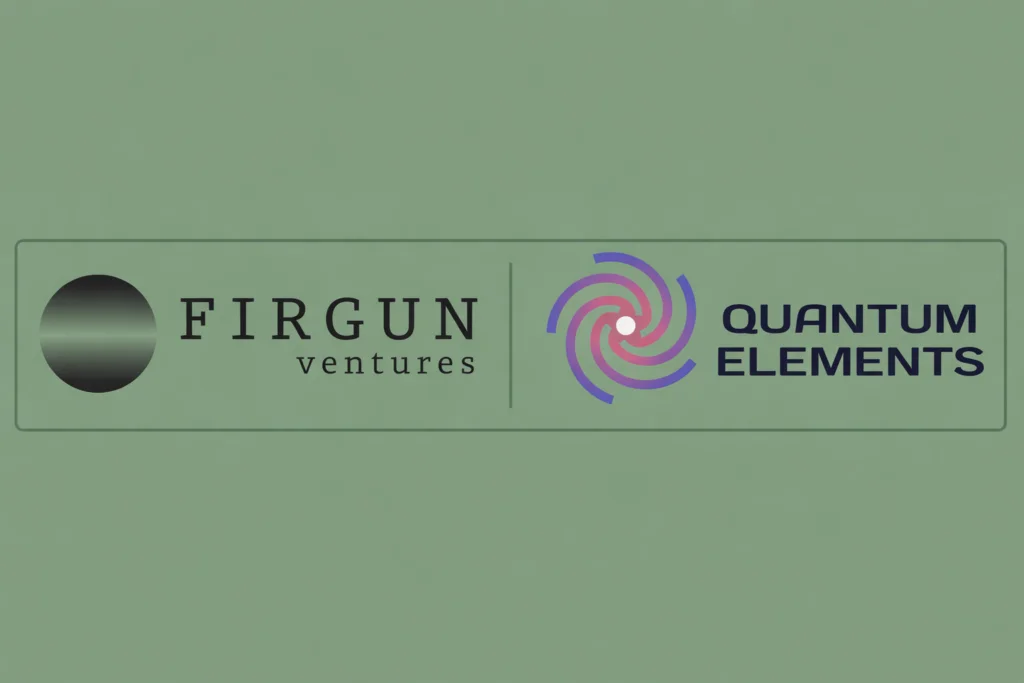Editor’s Note: Based on the excitement generated by the announcement that the United Nations declared 2025 as the International Year of Quantum Science and Technology, we would like to publish an in-depth piece on the origins and motivation of IYQ2025. We would like to thank the team behind IYQ2025 for allowing us to share.
Celebrating 100 years of Quantum Science Revolution: United Nations declares 2025 International Year of Quantum Science and Technology
The Road to the Proclamation of IYQ2025
Ismael Madrigal

Permanent Delegation of Mexico to UNESCO
Ana María Cetto
Instituto de Física, Universidad Nacional Autónoma de México and member of the Executive Committee of the International Year 2025 of Quantum Science and Technology
Abstract
Since the 20th century, quantum science has profoundly influenced our understanding of the universe and led to numerous technological advances. On 7 June 2024, the United Nations General Assembly proclaimed 2025 as the International Year of Quantum Science and Technology (IYQ2025), recognizing the enormous potential of quantum science and technology to address humanity’s most pressing challenges. This International Year will celebrate the 100th anniversary of the first developments in modern quantum mechanics and will provide a valuable opportunity to raise awareness especially among children and young people, about the role of quantum science and technology in our lives. This article briefly reviews the beginnings of quantum mechanics and describes the origins, meticulous preparations and profound significance of the IYQ2025 celebrations.
Quantum science and technology: from the beginnings to the present day
Although quantum theory may seem like a cutting-edge concept, its roots date back to the late 19th and early 20th centuries, when scientists began to realize that classical physics could not explain certain phenomena observed at the atomic and subatomic levels. Groundbreaking contributions by pioneering theoretical and experimental scientists, many from Central European countries, set the stage for an avant-garde shift in our understanding of the physical universe: quantum theory. Its foundations have been fundamental to some of the most important technological developments of our time.
The birth and development of quantum physics is the result of the contributions of many great scientific minds and thus cannot be attributed to any one individual. Together, they developed a comprehensive framework for understanding the behavior of particles at the atomic and subatomic levels. The birth of quantum physics is often marked by Max Planck’s introduction of the quantum hypothesis in 1900. While studying black body radiation, Planck realized that classical theories could not account for the observed spectrum of emitted light. He proposed that energy was quantized, meaning that it could only be emitted or absorbed in discrete units called “quanta”. This revolutionary idea laid the foundation for the development of quantum theory.
In 1905, Albert Einstein furthered quantum theory by explaining the photoelectric effect, in which light striking a material releases electrons. The classical wave theory of light could not explain why light below a certain frequency, regardless of its intensity, did not eject electrons. Einstein proposed that light itself is made up of quanta, later called photons, and that the energy of these photons is proportional to their frequency. This explanation confirmed the particle nature of light and earned Einstein the Nobel Prize in Physics in 1921.
The development of quantum mechanics accelerated in the 1920s with contributions from several key figures. In 1911 Ernest Rutherford discovered that most of the atom’s mass is in the nucleus. Niels Bohr refined Rutherford’s model in 1913 by introducing his atomic model in which electrons occupy fixed orbits around the nucleus and jump between these orbits by absorbing or emitting quanta of energy. In 1924, Louis de Broglie proposed that particles such as electrons exhibit wave-like behavior, a hypothesis confirmed by experiments showing electron diffraction.
In 1925, Werner Heisenberg formulated matrix mechanics, one of the first complete formulations of quantum mechanics. Erwin Schrödinger followed in 1926 with wave mechanics, which describes how the quantum state of a physical system changes with time. Schrödinger’s wave equation became a central equation in quantum mechanics, linking the wave-like properties of particles to their physical behavior. The formal birth of quantum mechanics is marked by the contributions of Heisenberg and Schrödinger.
Thanks to these groundbreaking scientific efforts, quantum mechanics emerged as undoubtedly one of the most important scientific theories of the 20th century. It became the central theory governing our entire physical universe, from the behavior of subatomic particles to the distribution of galaxies in the cosmos.
Origins and motivations of the IYQ2025 proclamation initiative
Quantum science has been at the forefront of major technological innovations across many fields in recent decades. This so-called “first revolution” has continued to evolve and remains a vibrant and expanding field. Today, we use quantum physics in our everyday lives, for example, with integrated lasers and compact batteries that have transformed communications and medicine, improving the quality of life for billions of people around the world. Quantum theory is at the heart of how light-emitting diodes (LEDs) work, transforming the efficiency of lighting, reducing our dependence on fossil fuels, and providing new off-grid lighting solutions in poor regions.
Looking ahead quantum science and technology will be arguably the most important interdisciplinary field of the 21st century. A “second quantum revolution” is underway, and its applications in the coming decades will bring transformative advances in environmental sensing, the development of new materials and medicines, improved batteries and more efficient solar cells, highly secure communications, and the ability of quantum computers to model complex physical systems more accurately and precisely, which is essential for understanding climate and extreme weather.
Despite all the progress made in recent decades and the enormous expectations, the scientific term ‘quantum’ is still unfamiliar to most people, including decision-makers, who often find it difficult to understand. It is therefore essential to raise awareness of the importance of quantum science among policy-makers and the general public, and to inspire young people to become the next generation of quantum pioneers.
This was the main motivation that led a group of more than 30 international scientific societies, academies, and unions from around the world[1] to present a proposal to proclaim the IYQ2025 at the 30th General Assembly of the International Union of Pure and Applied Physics (IUPAP) in October 2021. The IUPAP expressed its “strong support for the International Year of Quantum Science and Technology goals, encompassing science, education, outreach, and particularly aiming to promote physics education and improve the quality of life for citizens in developing nations.”[2]
This strong endorsement was a major achievement and marked the beginning of the long and arduous process required to bring a scientific proposal to the consideration of the only world organization responsible for proclaiming an International Year: The United Nations.
In fact, International Years can only be proclaimed by the United Nations (UN) during its annual General Assembly sessions and only at the request of one (or more) UN Member States. The UN General Assembly designates International Years to highlight specific themes in order to promote the objectives of the Organization through awareness and action. In addition to raising public awareness, these International Years have led to greater understanding and new partnerships between scientists and decision-makers, as well as new initiatives in research and education.
Several UN International Years have been dedicated to scientific themes, with the aim of promoting the global importance of a particular field of science in areas such as sustainable development, education, and culture. Among the most successful in recent times is the International Year of Light and Light-based Technology (2015), which reached millions of people of all ages around the world with many thousands of events at all levels[3].
UNESCO: Launch of the comprehensive intergovernmental process to proclaim of the IYQ2025
Given that International Years are proclaimed by the UN General Assembly after prior endorsement by a UN agency, such as the United Nations Educational, Scientific and Cultural Organization (UNESCO), when the theme falls within its domain of expertise, Mexico, through its Permanent Representation to UNESCO, took the lead in proclaiming the IYQ2025. The effort began in September 2022 with the preparation of the working document[4] to be presented to the 216th session of the UNESCO Executive Board in May 2023. Close collaboration between the Permanent Delegation of Mexico, the IYQ2025 Executive Committee and the UNESCO Secretariat was essential to consolidate a text with clear and concise language that could be endorsed by the Organization’s Member States. The period from October 2022 to May 2023 was dedicated to gaining support, which required intensive advocacy and lobbying among the Permanent Delegations accredited to UNESCO.
The proposal to designate the year 2025 as the IYQ2025 was presented to the 216th UNESCO Executive Board by Mexico, on behalf of 59 countries around the world[5]. The proposal received resounding support, and on 19 May 2023, the UNESCO Executive Board adopted by acclamation a decision in support of this initiative. This decision[6] by UNESCO is in line with its commitment to science and technology for the benefit of humanity and is a recognition of the beneficial role of quantum science and technology in our lives.
In accordance with the procedure established by UNESCO, this decision was endorsed by the 42nd session of the General Conference of UNESCO held in Paris. On 13 November 2023, the General Conference adopted by acclamation a resolution[7] in favour of the proclamation of the IYQ2025 and recommended that the UN General Assembly, at its seventy-eighth or seventy-ninth session, adopt a resolution proclaiming the IYQ2025.
United Nations General Assembly: At the end of a long and successful journey
The Government of Ghana, through its National Commission for UNESCO and its Permanent Mission to the United Nations, took up the baton and played a leading role at the United Nations Headquarters in New York to promote the adoption of a resolution at the General Assembly Plenary to proclaim IYQ2025.
The Permanent Mission of Ghana formally initiated the process on 5 April 2024 by circulating among Permanent Missions the zero draft of the draft resolution, which was formally presented on 8 April 2024 at an information session at UN Headquarters in New York attended by the Permanent Representative of Ghana to the United Nations, the Director of the UNESCO Liaison Office to the United Nations and members of the IYQ205 Executive Committee.

In accordance with the rules of procedure of the UN General Assembly, Ghana subsequently organised three informal consultations with Member States on the draft resolution in April, during which countries were given the opportunity to express their views on the draft resolution and to make suggestions. It should be noted that, in general, all the suggestions received were constructive and positive.
As a result of this process and based on the recommendation of the 42nd General Conference of UNESCO, on 10 May, Ghana, with the co-sponsorship of Finland, India, Peru, South Africa and Turkmenistan, submitted the draft resolution entitled “International Year of Quantum Science and Technology, 2025” for consideration by the UN General Assembly.
On 7 June, the 78th session of the United Nations General Assembly, stressing that the celebration of scientific discoveries provides an opportunity to promote science, technology, engineering and mathematics education and research for all, including youth, girls and women, especially in developing countries, decided to proclaim 2025 as the International Year of Quantum Science and Technology, with the support of more than 70 countries. It also requested UNESCO to serve as the lead agency and focal point for the IYQ2025 and invited all Member States, international and regional organizations, academia, civil society, the private sector, and other relevant stakeholders to participate in this global celebration.
This decision is an achievement and recognition of the commitment of the scientific and diplomatic community to put quantum science and technology on the international agenda. It also marks not the end of a long process that began in October 2021 with IUPAP’s endorsement of the IYQ2025, but rather the beginning of an intense period of preparation for the 2025 celebration.
Next stage: Preparation and main expected outcomes of the IYQ2025 celebration
Once proclaimed, the celebration of an International Year requires extensive and significant preparation, and the IYQ2025 is no exception. Following the successful example of previous International Years of Science, a Steering Committee and an international consortium of multidisciplinary and multisectoral partners[8] have been established in coordination with the UNESCO Secretariat to promote the goals of the International Year and prepare for its effective celebration. The focus is on inspiring and educating the next generation of scientists from all regions of the world, especially women and young researchers.
A special emphasis of the IYQ2025 will be on the development of activities at all levels to raise public awareness of the importance of quantum science and its applications. This includes strengthening international, multilateral, and interdisciplinary scientific cooperation between research institutions, researchers and innovators in quantum science and technology. The initiative also aims to ensure a focus on the application of quantum science and technology to achieve the goals of the UN 2030 Agenda for Sustainable Development and the UN International Decade of Science for Sustainable Development (2024-2033), in particular in areas related to energy, environment, climate, agriculture, health and industrial development.
One of the main expected outcomes of IYQ2025 is to make decision-makers and leaders worldwide aware of the need to support education and research activities in quantum science and technology at the national level. In addition, the initiative aims to share best practices in education and research between countries with different economies, support technology transfer and entrepreneurship for development, and develop new international networks linking researchers from different countries. Particular emphasis will be placed on expanding research in quantum science, especially among young researchers, with a focus on gender equality and Africa.
Join the IYQ2025 celebration
International Years do not receive direct financial support from the United Nations or UNESCO, so all international activities must be supported by voluntary contributions from national and international scientific associations, universities and science-related non-governmental organizations, and the private sector. The IYQ2025 Steering Committee therefore invites all entities to consider how best to participate in the IYQ2025 celebrations and to express their interest in organizing and/or sponsoring activities by sending an email to info@quantum2025.org. For more information, visit the international website https://quantum2025.org/en/
Conclusions
The history of quantum physics is a testament to the remarkable progress of the human mind in unraveling the mysteries of the universe, from the pioneering work of Planck and Einstein to the revolutionary insights of Bohr, de Broglie, Heisenberg and Schrödinger.
In 2025, we will celebrate 100 years since the first development of modern quantum mechanics, which has transformed our understanding of nature at its most fundamental level, such as atoms and subatomic particles. Thanks to quantum science, we now understand why the sun shines, how magnets work, how atoms form chemical bonds, and how the pattern of galaxies in the universe was formed.
Over the past hundred years, quantum science has been at the heart of some of the most important technological developments of our time, and it will continue to play a key role in addressing humanity’s most pressing challenges. However, there is a significant lack of awareness of it among the general public and decision-makers. Moreover, its benefits have mainly accrued to developed countries, and there is an urgent need for all regions of the world to develop similar priorities in quantum science and research.
There is an urgent need to inspire and encourage young minds around the world. IYQ2025 aims to nurture the next generation of quantum pioneers who will use quantum science to make a positive impact on humanity. This International Year will provide a unique opportunity to foster collaboration and concerted efforts to harness the power of quantum science and technology. To make the IYQ2025 a global success, everyone is invited to join this grand celebration.
Acknowledgments
One of the co-authors wishes to acknowledge the commitment and efforts of her fellow members of the IYQ2025 Executive Committee, Joseph Niemela, John Dudley and Amal Kasry, without whom the IYQ2025 would not have become a reality.
Bibliographic references consulted in preparing the history section of this article
- Squires, Gordon Leslie (2024). Quantum mechanics. Encyclopedia Britannica. Available at: https://urlz.fr/qPUt. Accessed May 24, 2024.
- Marcelo Gleiser (2022). A brief history of quantum mechanics. Big Think. Available at: https://urlz.fr/qQ9m. Accessed May 24, 2024.
- Chad Orzel (2015). Six Things Everyone Should Know About Quantum Physics. Forbes.com. Available at: https://urlz.fr/qOmB. Accessed May 25, 2024.
[1] International Year of Quantum Science and Technology Partners (2024). List of key organizations scientific societies and academies endorsing the IYQ2025 initiative. Available at: https://urlz.fr/qJBH Accessed 23 May 2024
[2] International Union of Pure and Applied Physics (2021). Resolutions of the 30th General Assembly of the IUPAP, Geneva, Switzerland, 20-22 October 2021, resolution 9. Available at: https://urlz.fr/qL7W Accessed 23 May 2024
[3] United Nations Educational, Scientific and Cultural Organization (2016). The International Year of Light and Light-based Technologies 2015: a successful community partnership for global outreach: final report. Available at https://urlz.fr/mKpt Accessed May 23, 2024
[4] United Nations Educational, Scientific and Cultural Organization (2023). Document 216 EX/37 (Paris, 14 April 2023) of the 216th Executive Board of UNESCO “Proposal for the proclamation by the United Nations of 2025 as the International Year of Quantum Sciences and Technologies”. Available at: https://urlz.fr/qJSB Accessed 22 May 2024
[5] Albania, Algeria, Argentina, Austria, Azerbaijan, Belgium, Benin, Brazil, Chile, China, Cuba, Ecuador, Egypt, Estonia, France, Gabon, Ghana, Guatemala, Hungary, Indonesia, Iraq, Italy, Japan, Jordan, Kuwait, Lebanon, Liberia, Libya, Lithuania, Morocco, Netherlands, Russian Federation, Saudi Arabia, Slovakia, Spain, Pakistan, Palestine, Paraguay, Principality of Andorra, Principality of Monaco, United Kingdom, Czech Republic, Republic of Belarus, Republic of Korea, Dominican Republic, Democratic Socialist Republic of Sri Lanka, Romania, Saint Lucia, Senegal, Serbia, South Africa, Switzerland, Tunisia, Turkey, Ukraine, Uruguay, Venezuela, and Vietnam.
[6] United Nations Educational, Scientific and Cultural Organization (2023). Decisions adopted by the Executive Board at its 216th session, Paris, 10 –24 May 2023, decision 29. Available at: https://urlz.fr/qJDy Accessed 25 May 2024
[7] United Nations Educational, Scientific and Cultural Organization (2023). Records of the General Conference, Forty-second Session, Paris, 7–22 November 2023, vol. 1, Resolutions, resolution 23. Available at: https://urlz.fr/qJSI Accessed 23 May 2024
[8] International Year of Quantum Science and Technology Partners (2024). Available at: https://urlz.fr/qJBH Accessed 25 May 2024.














